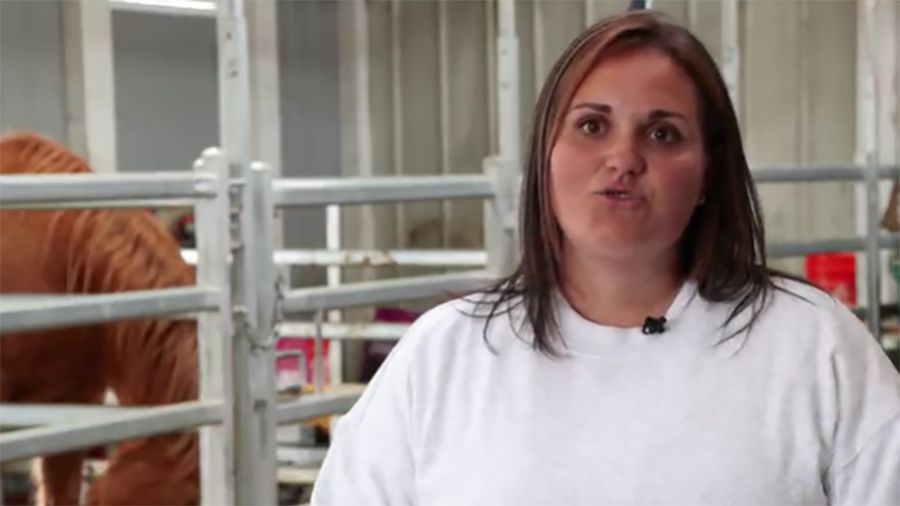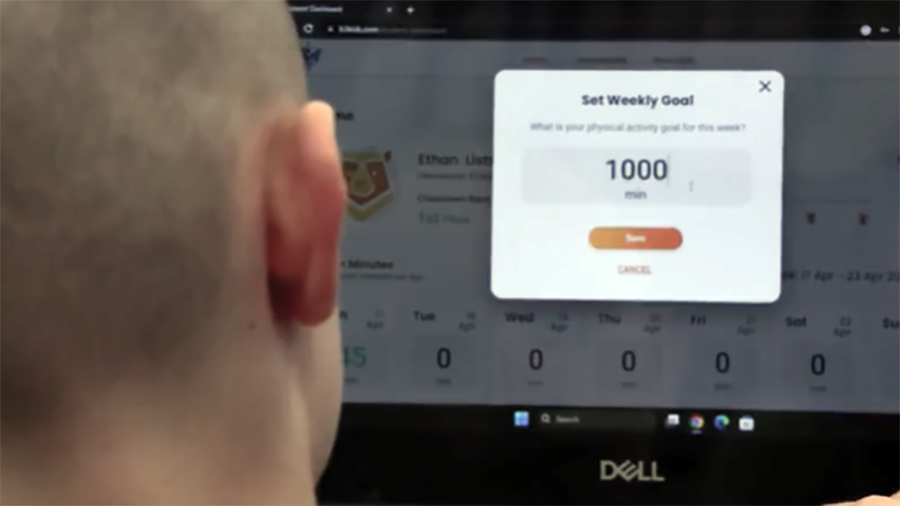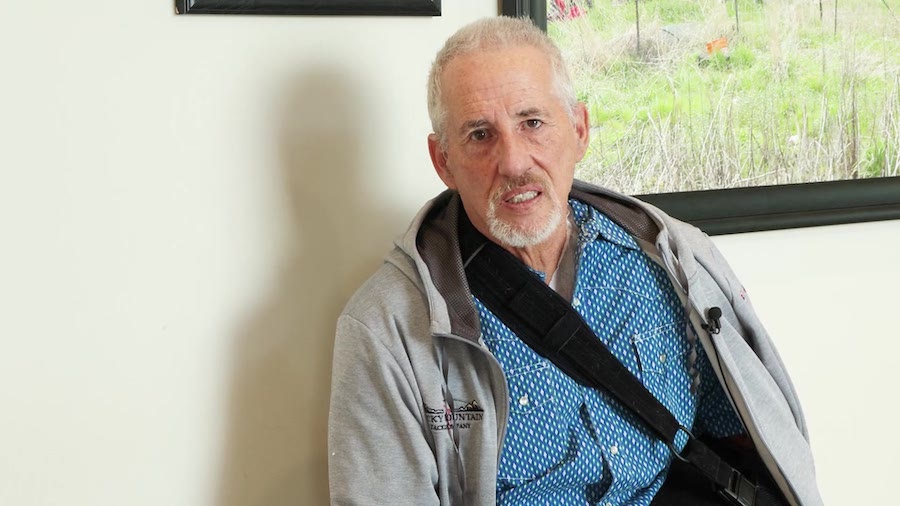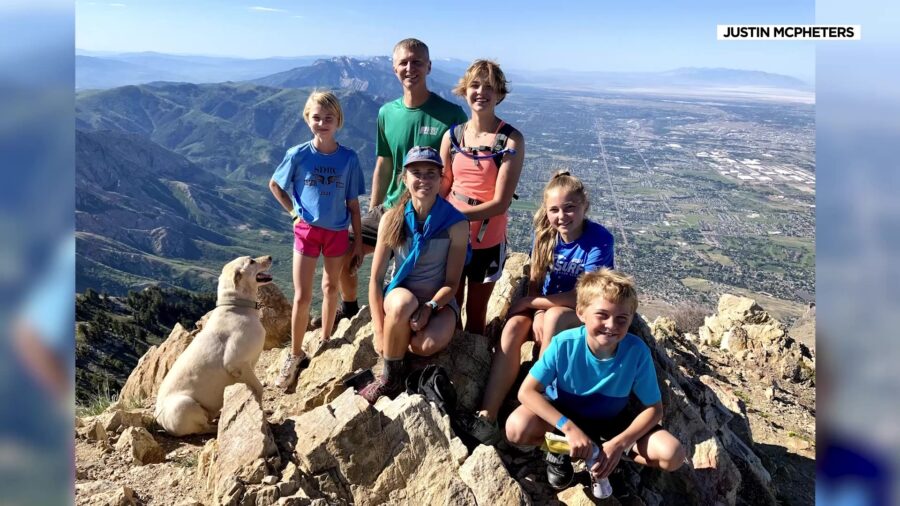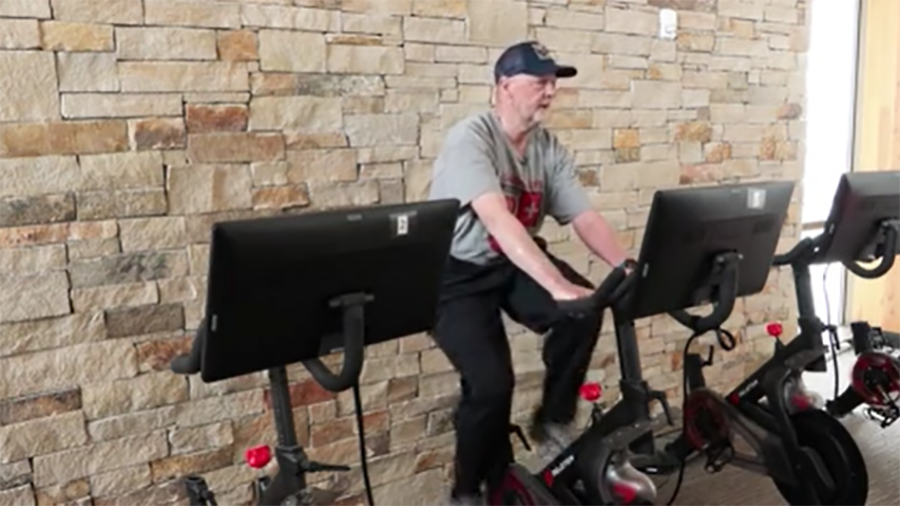YOUR LIFE YOUR HEALTH
Intermountain Healthcare offers hospital-level care from home for stabilized COVID-19 patients
Sep 2, 2021, 6:44 PM | Updated: Sep 3, 2021, 6:59 am
SANDY, Utah — As ICU beds reach max capacity with yet another rise in COVID-19 cases, Intermountain Healthcare is looking for additional ways to take care of sick patients. A new program born during the pandemic utilizes technology to allow some patients the luxury of recovering from the comfort of their home.
Bill and Karisa Affleck got COVID-19 at the end of May. “I got better and he didn’t,” Karisa said.
He was admitted to the hospital when his symptoms got worse. “My oxygen levels have dropped so low. They were at 83%,” he said. “Immediately they just got me an oxygen and said, ‘You’re going to be on the oxygen probably for a month or so.’”
Bill was sent home on oxygen, but just a couple of days later, he got another call from the hospital who had been monitoring him from home.
“They said, ‘Yeah, you gotta go to the hospital. Your heart’s only beating 34 times a minute,’” Bill recalled.
“When he didn’t get better and had to go back into the hospital, that’s when I became very worried,” Karisa said. “They were running all these different tests.”
After a few days in the hospital, Bill’s condition stabilized. “They ruled out if I was having a heart attack, or if I had blood clots,” he said. “At that point, I just needed to get better. They knew I wasn’t going to die, I just needed to get better.”
That’s when he was given the option to continue hospital-level care from the comfort of his own home.
“’Would you rather stay in the hospital for three more days or would you rather go home?’ And I said, ‘Boy, get me out of here. That sounds like a great plan,'” Bill said.
A home-health nurse came every day for about 20 minutes to draw his blood, administer Remdesivir through an IV and check his vitals. “Someone showed up with all the equipment that was needed to be monitored from home, (and) explained how it would work,” Bill said.
Karisa was also asked to take on some of the medical responsibilities to care for her husband. She was asked to flush Bill’s IV every day after the nurse left, give Bill injections in his abdomen to prevent blood clotting and measure his oxygen and blood pressure. Initially, she was surprised by the elevated role she was asked to take on.
“I didn’t have medical training and so I was I was nervous about that at first,” but she said she felt supported with the option of calling a doctor or nurse at any time. “He made sure I felt comfortable with the whole process,” Karisa said.
“Karisa would take my blood pressure, I’d weigh myself, we take my temperature every day and then we just log those things into the program,” Bill described.
Dr. Nathan Starr, an internal medicine physician and medical director of home services for Intermountain at Home and Intermountain’s tele-hospitalist program, says tele-nurses, tele-advance practice providers and tele-hospitals monitor their patients’ vitals from the virtual hospital 24/7.
“(The patient) hits a button on their phone or their tablet and it uploads the data,” Starr explained. “If there is an abnormal vital sign, they’ll immediately receive an alert.”
Bill said it provided him with constant reassurance. “They always knew how I was doing,” he said. “It was super comforting because again, I didn’t know what to look for.”
Every night, Bill video chatted with his doctor. “They’d be sitting there looking at my results and talking to me over an iPad,” he said. “They’d always make it very clear that if I needed to call in if I had any questions that there was always somebody there.”
“Patients are happier and do better when they’re at home,” Starr said.
“Just being at home, being able to be in your own surroundings, being able to walk to your refrigerator and get something to eat or lay in your own bed and not be hooked up to those machines that would just beep and beep all night long. I think that really helped me heal more quickly just because I was so comfortable,” Bill said.
The Afflecks say they got better sleep at home. “When we were at the hospital, neither one of us were getting sleep,” Karisa said. “The machines were beeping the entire time.”
Bill said he also ate better at home. “But here, (Karissa) could help give me the things that make me comfortable and get me the foods that I enjoy. I wasn’t eating much, but still, I had all the comforts of home,” he said.
Bill also felt like he received more personable care. “When that nurse shows up here, or you have that doctor on the iPad– he is only working with me, she is only there to visit with me. She’s not distracted,” he said.
Karisa felt her husband was still getting quality care at home. “I knew that he was getting the exact same care that he was getting in the hospital, but he just had the luxury of being at home,” she said.
Since Bill was no longer contagious, they also were grateful to be surrounded by family, friends, and their dog at home. “It was a huge relief to be able to come home and to be with our kids,” Karisa said.
“It was nice to have family and friends and people stop by,” she said. “And play games around the table and different things that were would never be possible if we were in the hospital, especially how it is with all the restrictions.”
After about three days at home, Bill started to feel much better. In total, he was sick for about 24 days.
Fortunately, Bill was healthy enough to attend his son’s wedding on June 23. It was the first day he wasn’t on oxygen. “I was determined. I wasn’t gonna miss that for the world so I was super grateful,” he said. “When you have five kids there are certain things you never want to miss.”
Starr said this program also helps free up hospital space for those more critically ill. “Anything we can do (to) open up one more beds — it gives an opportunity for us to take care of a patient that really needs it,” Starr explained.This program was started in direct response to the pandemic, but Intermountain can now offer hospital level care at home for patients with other illnesses, like congestive heart failure, chronic obstructive pulmonary or kidney disease, some intestinal or vein conditions, pneumonia, and even certain cancer diagnoses. Starr says it’s about 20 percent less expensive than traditional hospital care, while maintaining quality of care.
Starr says his team of physicians is very careful about which patients they offer hospital-level care at home to. “They need to be at lower risk for rapidly getting worse,” he said. They also consider various factors like how much oxygen a patient is on, how much inflammation that patient has based on the cHIS scale, and if they are dealing with other uncontrolled medical problems.
Starr believes this model of healthcare is the answer to future medicine. “Our goal is to give patient the exact same care they would get in the hospital,” he said.
Intermountain’s hospital-level care at home program is available to patients from 12 of Intermountain’s hospitals in Utah ranging from Logan to St. George.

